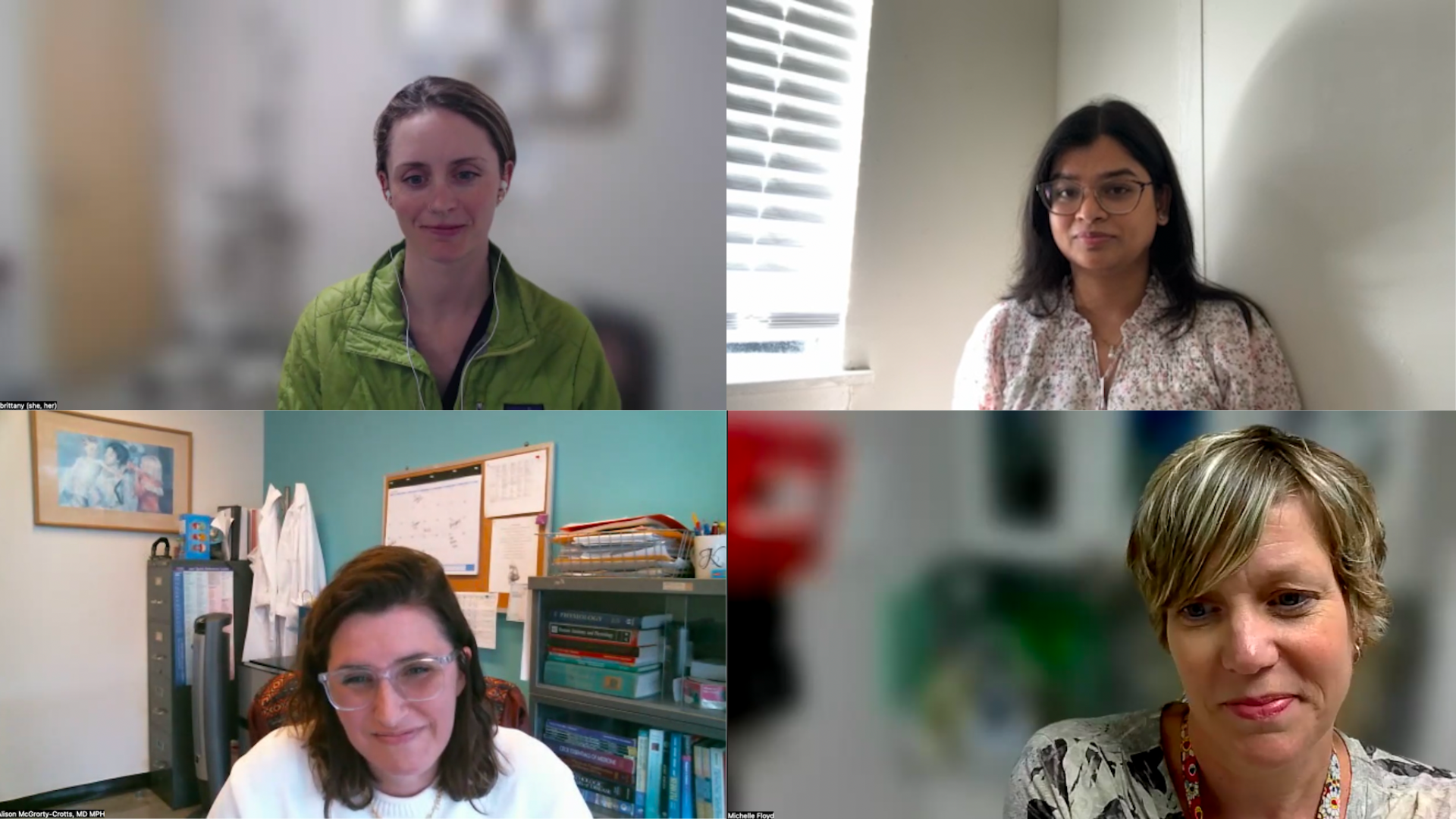
Empowering Providers and Changing Lives Since 2006
For nearly 20 years, The REACH Institute has worked directly with primary care providers, mental health clinicians, and health systems to ensure that the most effective, scientifically proven mental health care reaches all children and families.
providers trained in evidence-based mental health care
children and families now receiving care from a REACH-trained provider
hospitals, health systems, and clinics partnering with REACH to expand access to care
Evidence-based Outcomes
Hear from 2025 PPP Scholarship Recipients
Our 2025 Round One scholarship recipients include 25 outstanding primary care providers dedicated to increasing access to effective mental health care for their communities. Meet four of this year’s providers and hear how they plan to use their new knowledge to transform their communities.
Meet Dr. Payal Maniar
New Jersey Pediatrician Payal Maniar, MD speaks to the profound impact that a scholarship to REACH’s Patient-Centered Mental Health in Pediatric Primary Care (PPP) program had on her practice’s community of mostly Medicaid children and families. Thanks to her training, her practice now offers care to “the whole person.”

Meet 13 year old Mia.
Dr. Abdul-Haqq probed deeper and uncovered that Mia had been having these feelings for more than a year. At one point, she had climbed to the railing of a bridge and contemplated jumping.
Tragically, the story of Mia is not unique. Children and adolescents in the U.S. are in the midst of a mental health crisis; one in five have a diagnosable mental health condition. Just 20 percent of those children are receiving adequate care for their condition.
“For a lot of my patients, I’m all they have,” says Dr. Abdul-Haqq. In the area where Dr. Abdul-Haqq practices and Mia lives, there are no child and adolescent psychiatrists (CAPs). Only one adult psychiatrist is willing to see children, with a maximum of just four on their patient panel at a given time. This provider also does not accept Medicaid, further limiting who can receive care.
Mia and her family were fortunate, because she happened to have a primary care provider who was skilled in delivering mental health care. For Dr. Abdul-Haqq, like most primary care providers, that was not always the case. Only a few years before Mia walked into her office, Dr. Abdul-Haqq completed REACH’s Patient-Centered Mental Health in Pediatric Primary Care (PPP) program. This training was where she learned how to administer the very screening tool she used to uncover Mia’s suicidal ideation.
Mia is one of the 2.1 million children who has experienced the impact of a REACH-trained PCP. Dr. Abdul-Haqq completed the PPP and transformed her practice as a result. Through the program, she learned how to use evidence-based screening tools to diagnose mental health conditions and administer effective treatments. In addition, she learned to leverage other providers and community resources to ensure that the children she sees receive the support they need.
The skills she gained from REACH were demonstrated during her visit with Mia. In assessing Mia, Dr. Abdul-Haqq found that she did not meet diagnostic criteria for major depression. Rather, she suffered from severe anxiety. “Before REACH, I thought only patients with depression were at risk of suicide,” says Dr. Abdul-Haqq. “But I learned that anxiety can also bring suicidal thoughts.”
Dr. Abdul-Haqq worked with Mia and her mom to develop a safety plan and prescribed an anti-anxiety medication. Then, she connected her with a counselor in the community who provides cognitive behavioral therapy (CBT).
Today, Mia is doing so well that her pediatrician is weaning her off the anxiety medication.
“Mia is using her CBT skills,” Dr. Abdul-Haqq says. “She’s even teaching some CBT to her mother! She has been empowered by her treatment.”
In the words of our providers and partners…
After sending three cohorts of PCPs from across Vermont to The REACH Institute’s signature PPP training, we have seen our PCP partners grow tremendously in their confidence with treating mental health conditions.
Ellen Arrowsmith, Vermont Child Psychiatry Access Program (VTCPAP) Liason Coordinator
REACH is the best-run CME program I have ever participated in! Whether it is learning about the disease process, learning how to bill better, how to access resources…there’s something for everybody.
Payal Maniar, MD, 2024 PPP Scholarship Recipient
This was the most valuable CME course I have ever taken. It was on point, clear, concise but comprehensive, goal-oriented and motivational. I have taken a number of pediatric psychiatry courses in the past and none have even come close to this one. I wish I’d had this training 30 years ago.
Paul Parker, MD, 2025 PPP Alum
This course was far and away the most effective CME I have participated in. I walked away with knowledge, but also, I felt like I could do something.
At the end of the day, the engagement of both my head and my heart in this training was the most valuable thing.
Barbara Miller, MD, 2024 PPP Alum
There are so many things that are easily fixed, very quickly, after this training. I don’t know how anyone could go through practice without it. Our patients need our help and this program fills the knowledge gap.
Jean Braden, NP, 2024 PPP Alum
Before REACH, my comfort level with [addressing] behavioral health wasn’t nearly as high as it was with [physical health], but now I can approach these cases with the same confidence and ease.
Avis Johnson-Smith, FNP, 2023 PPP Scholarship Recipient
*Sources:
McCaffrey ESN, Chang S, Farrelly G, et al Mental health literacy in primary care: Canadian Research and Education for the Advancement of Child Health (CanREACH) Evidence-Based Medicine 2017;22:123-131 : http://ebm.bmj.com/content/22/4/123
McCaffrey et al., 2021. The economic impact of providing evidence-based pediatric mental health literacy training to primary care physicians. Psychiatry Investigations. 18(7): 695-700 : https://www.ncbi.nlm.nih.gov/pmc/articles/PMC8328829/


